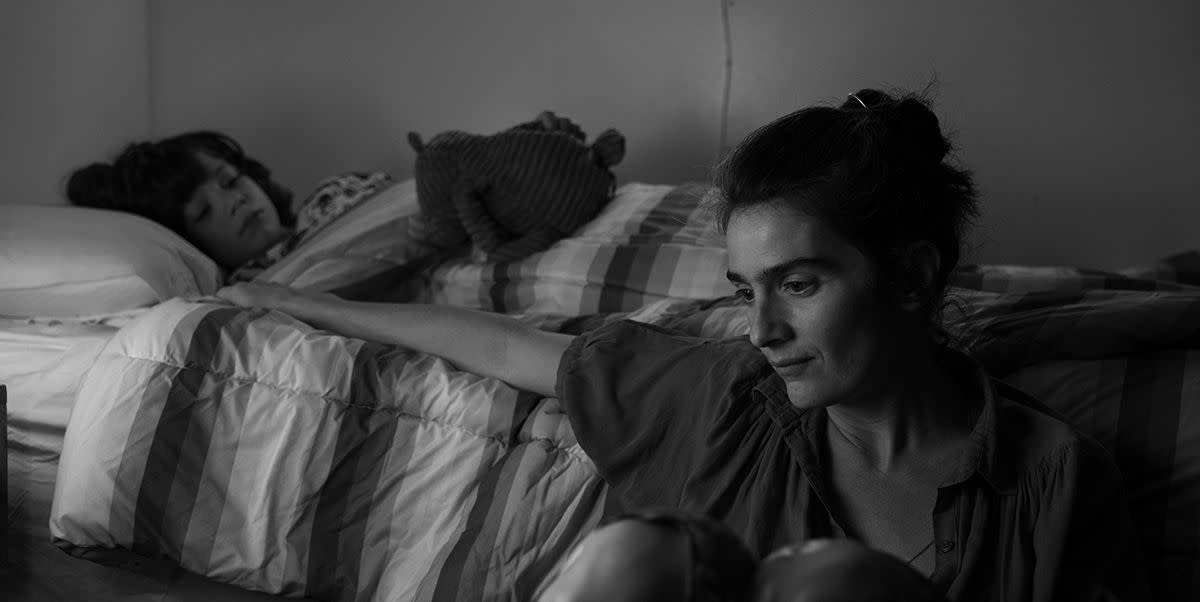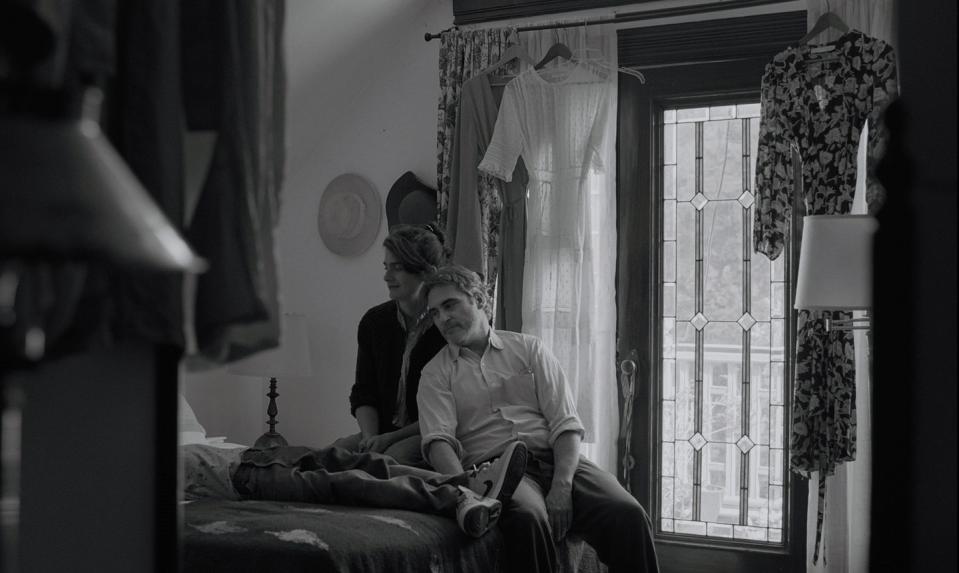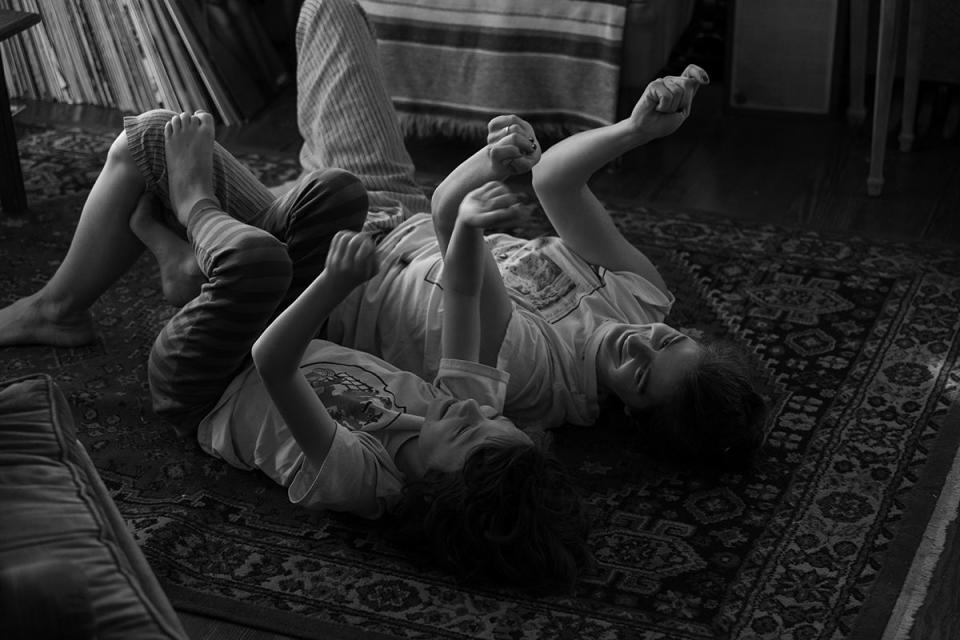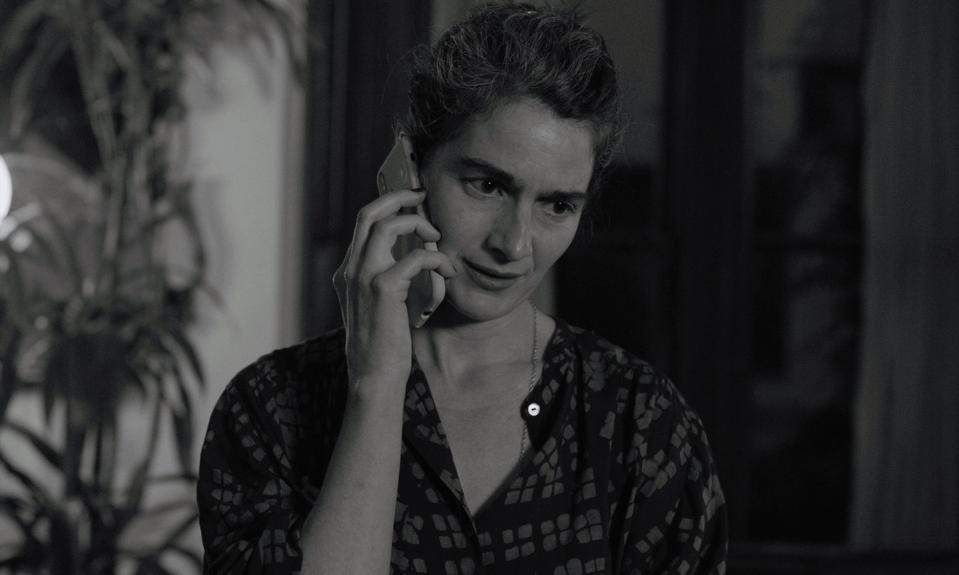C'Mon C'Mon Star Gaby Hoffmann on Socially Distanced Filmmaking

Even though C’Mon C’Mon finished filming before March 2020, there’s something about the film—the latest from director Mike Mills (20th Century Women, The Beginners), in theaters now—that feels spot on for the times we’ve just lived through. Perhaps it’s because the film deals with separation among family members, attempts to connect from afar, and our struggles to realize that the problems of others can be just as monumental as those we face ourselves—but there’s a quality to the film, which stars Joaquin Phoenix, Gaby Hoffmann, and Scoot McNairy, that makes its arrival feel right on time.
When we meet Phoenix’s Johnny, he’s a journalist estranged from his sister Viv (Hoffmann). But when Viv is tasked with tackling the mental-health struggles of her husband (McNairy), Johnny finds himself looking after her nine-year-old son (the excellent Woody Norman) and finding his ideas about the meaning of family ties challenged. It’s an engaging and emotional feature that delivers impressive performances from its stars, both adult and child. (The New Yorker calls the movie, ‘a tender and turbulent melodrama.”)

Hoffmann is particularly impressive as Viv, who’s often connected to the other characters through the phone or FaceTime, trying to mother her child and deal with her until-recently-estranged brother from afar but remaining an undeniable presence throughout the film. Here, she talks to T&C.
This movie feels made for our moment—the way the characters are trying to stay connected through these means that are never quite good enough.
I don’t imagine that when Viv set out to have a child, she pictured his father living in another city or that her brother wouldn’t really know her son or that her mother would be dead. Life doesn’t look like we hope it will often, and that’s true pre- or post-pandemic. So, the struggle to raise a kid without those connections being present and strong is real, and most of us in this country are experiencing that.
What about Viv and her situation was interesting to you?
It began before I read the script. Mike asked me to have dinner with him and talk about this project, and we started a conversation about all the things this movie is about—parenting, art, filmmaking, life—and it was the beginning of a conversation I just wanted to keep having. I was intent on jumping on board with him regardless of the screenplay, but I had a feeling that would be good, too. Finding out he’d written about what it means to be a parent, to be taking care of others and the act of loving, made me feel so grateful and moved. I’m a mother of two, and this is what I do with my life. I didn’t hesitate to dive into this world.

A lot of your character’s interaction with the others is from afar—she’s on the phone or a video. Did that mean you worked remotely from your costars?
We shot the movie almost completely in sequential order. The first few weeks were almost all my scenes in L.A., so my time in the flesh with Joaquin and Woody was in those weeks, and then there were a couple of months when I was only on the phone. It would have been odd except that we had those few weeks together, and Joaquin and Woody were always on the other end of the line for me, and vice versa, so it felt very connected. They still felt like scenes with actors I had developed a working rapport with; I would be on set in a room with a phone and Joaquin would be outside or in the bathroom, I’d have just seen him and it was still very much integrated.
When you’re playing siblings or a parent to a child, how do you develop that rapport?
Mike likes his actors to hang out together rather than rehearse scenes. Woody and I hung out, we went out to lunch, and we talked. Joaquin and I didn’t do that; I had the idea that we should meet for the first time on camera. That’s not the way Mike usually works, but it’s what we did.
Did playing someone separated from her loved ones prepare you in any way for that actual experience?
To be honest, when the lockdown began, [my husband and I] looked at each other and were like, this isn’t so different from our regular life. We have two little kids and don’t go out much to do anything other than go to the playground.

Filming was completed long before the film came out. Is there anything you’re especially proud to see now or hoping resonates with audiences?
Mike edited for such a long time because of the pandemic and found the iteration of the film that is it reaching its full potential. More specifically, I find it really gratifying that so many women who’ve seen the film have had a moving and mirroring experience with the motherhood depicted. And I found it satisfying that the stuff between Scoot and I, which is very brief and often a montage, was so effective. Scoot and I did a lot of work; we did a lot of scenes improvising knowing that for every five minutes, only three seconds would end up on scene. What we hoped is that those three seconds were infused with what we’d done in all the minutes leading up to them, so you felt the full truth of who these people were.
You Might Also Like

